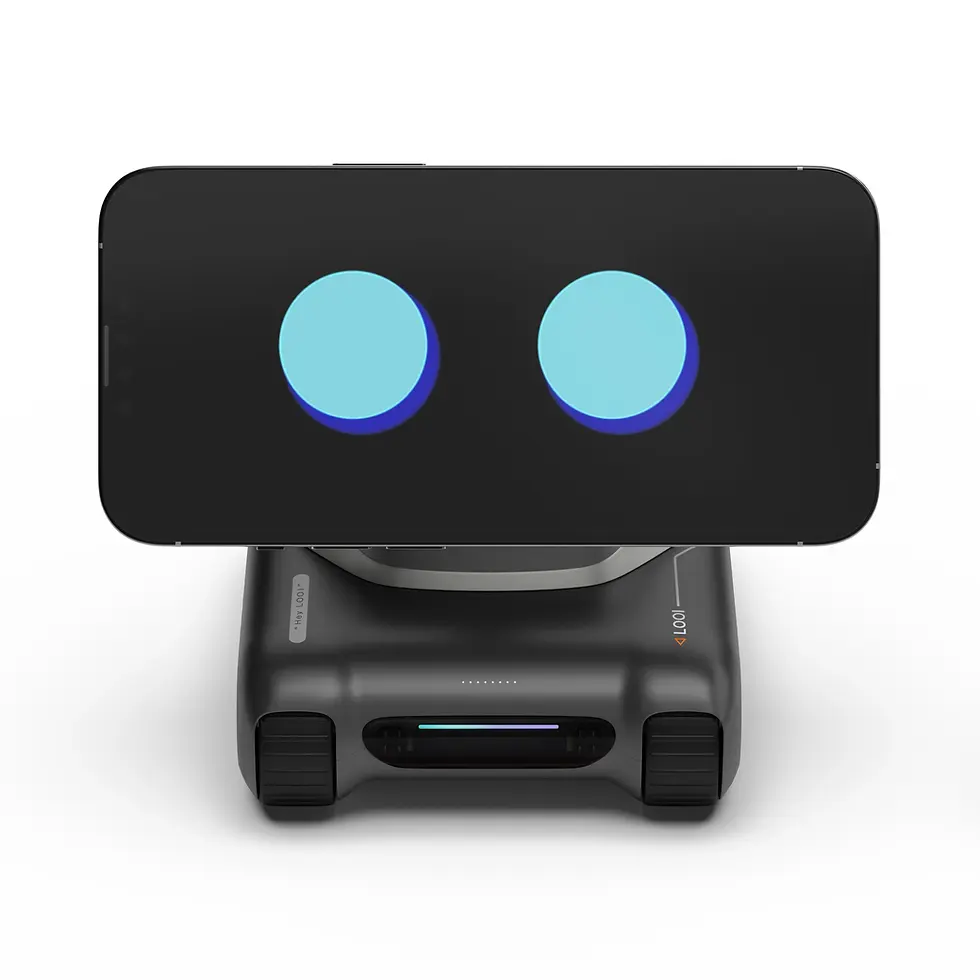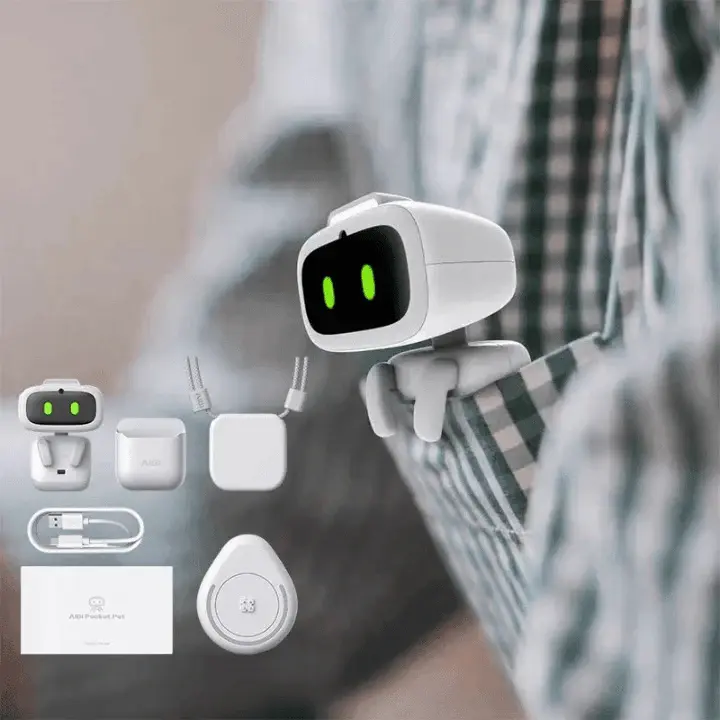LOOI Robot: The Next Leap in Autonomous Assistants
- Or Alkalay
- Sep 23, 2025
- 3 min read
In the fast-evolving world of robotics, the LOOI Robot is emerging as a standout example of what’s possible when cutting-edge AI meets intuitive design. Whether you’re a tech enthusiast, a business owner looking for automation, or simply someone curious about the future, this is one robot you’ll want to know.
What Is LOOI Robot?
LOOI Robot is an advanced autonomous assistant designed to navigate, perceive, and interact with its environment with minimal human intervention. At its core lie:
A suite of sensors (lidar, cameras, ultrasonic, etc.) for spatial awareness
On-board artificial intelligence (machine learning, computer vision) to interpret what it “sees”
Modular hardware that can be adapted for different tasks: mobility, manipulation, communication
In short: LOOI is built to do more than follow instructions—it learns, adapts, and collaborates.
Key Features
Here are some of the standout capabilities that set LOOI apart:
Feature | Description |
Adaptive Learning | LOOI can refine its behavior over time, adjusting for changes in its surroundings or tasks. |
Multi-Modal Perception | It combines optical cameras, depth sensors, and motion tracking to build a rich model of its world. |
Flexible Hardware Modules | Optional attachments let you add robotic arms, extra sensors, or different mobility modes depending on the use case. |
Easy Integration | Designed with open APIs and common robotics frameworks so developers can program or customize behavior easily. |
Human-Robot Interaction (HRI) | Natural-language processing, voice/sound recognition, and safety systems make it safer and more intuitive around people. |
What Can LOOI Robot Do?
Depending on how it’s configured, LOOI can serve in multiple roles:
Home Assistant: Helping with tasks like surveillance, fetching items, reminding users of appointments, or monitoring environmental hazards (smoke, gas leaks).
Customer Service / Retail: Greeting shoppers, guiding people to products, providing information, or even autonomous inventory checks.
Healthcare / Elder Care: Assisting patients or elderly people with reminders, retrieving items, or offering companionship.
Industrial / Warehouse Applications: Transporting goods, inspecting hard-to-reach areas, or monitoring facility environments.
Why LOOI Stands Out
Many robots promise assistance or autonomy. What makes LOOI different is:
Adaptability Over Time: Instead of needing constant reprogramming, LOOI is designed to learn from experience.
Modular Design Philosophy: You don’t get locked into a single mode—if your needs change, LOOI can be upgraded.
Human-Centered Safety & Interface: It’s built to work with people, not just around them. That means better safety features, easier controls, and more intuitive interaction.
Strong Support & Ecosystem: Developers get tools and documentation; users get reliable hardware and expansion options.
Challenges & Considerations
Of course, no robot is perfect. With LOOI, potential issues to watch:
Initial Cost & Investment: High capability often means higher price; accessories/modules add cost.
Learning Curve: Even with good tools, configuring behavior and setting up in complex environments takes time.
Maintenance & Reliability: Every sensor, motor, or mechanical component needs upkeep; software bugs can arise.
Ethical & Privacy Concerns: Vision, audio, and location sensors raise questions about data security and user consent.
The Future with LOOI Robot
Looking ahead, there are exciting possibilities:
Smarter collaboration among multiple LOOI robots in the same space (swarm robotics)
Integration with smart‐homes, IoT devices, and smart infrastructure
Improvements in energy efficiency & battery life for longer operation without charging
more sophisticated emotional or social interaction capabilities
Conclusion
The LOOI Robot represents a compelling vision of robotics—not just machines that perform tasks, but systems that can perceive, learn, adapt, and assist in meaningful ways. For anyone interested in where automation is going, LOOI is a robot to watch.





Comments